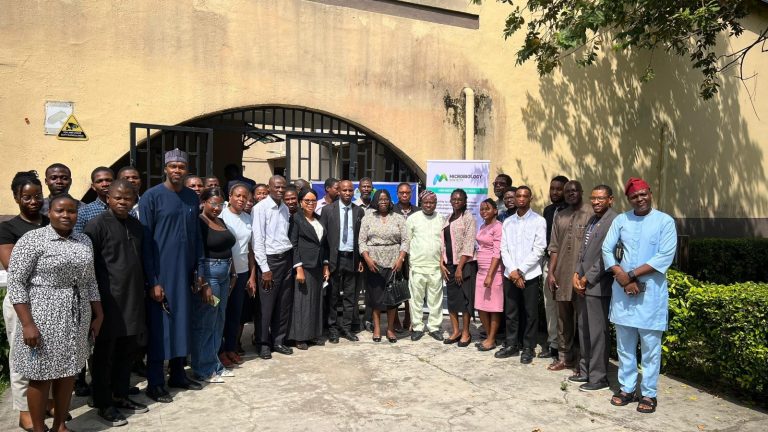Experts have raised awareness against anti-microbial resistance (AMR) in aquaculture at a high-level stakeholder meeting organized by the Antimicrobial Resistance Research Group held in Lagos.
Group is a dedicated team of scientists working to address the growing threat of AMR. They conduct research, raise awareness, and advocate for policies to combat AMR.
The event was convened by a Senior lecturer of the Department of Microbiology, University of Lagos, Nigeria, Dr. Bamidele Tolulope Odumosu
The event, which was part of activities commemorating the World Antimicrobial Awareness Week (WAAW) 2024 with the theme “Educate Advocate Act now” was supported by the Microbiology Society UK and co-organized by Dr. Olanike Maria Buraimoh a senior lecturer of the Department of Microbiology, University of Lagos and Dr. Tajudeen Akanji Bamidele, a Chief Research Fellow of the Nigerian Institute of Medical Research and the Antimicrobial Resistance Research Group.
ALSO READ: Agency urges Ondo govt to provide drugs, kits for HIV/AIDS, others in hospitals
According to a statement released, the meeting brought together a diverse group of stakeholders, including aquaculture farmers, researchers, government officials, students, and industry representatives.
The objective was to raise awareness of AMR in aquaculture, discuss its implications, and explore strategies to mitigate the growing problem.
Speaking at the event, Odumosu, a member of the Antimicrobial Resistance Research Group, underscored the imperative of a multi-sectoral approach to combat Antimicrobial Resistance (AMR), particularly in aquaculture.
As a sector that produces food directly from farm to table, aquaculture plays a critical role in addressing AMR, Odumosu emphasized the need to create awareness and explore alternative treatments for fish diseases, highlighting the urgency for collective action.
“By working together, we can promote responsible antibiotic use, adopt sustainable aquaculture practices, and safeguard public health,” he stated.
Some of the key discussions at the event included the Concept of AMR and its Global Impact during which participants highlighted the increasing prevalence of AMR and its potential consequences for public health and food security.
Other issues examined by participants were the overuse and misuse of antibiotics in aquaculture and their contribution to AMR; sustainable alternatives to antibiotics, such as plant extracts, probiotics, vaccines, and improved hygiene practices in disease management. The importance of effective regulations and policies to address AMR in aquaculture was also emphasized.
The meeting concluded with a call to action urging stakeholders to implement measures to reduce antibiotic use, strengthen surveillance systems, and invest in research and development of innovative solutions.
READ MORE FROM: NIGERIAN TRIBUNE
Get real-time news updates from Tribune Online! Follow us on WhatsApp for breaking news, exclusive stories and interviews, and much more.
Join our WhatsApp Channel now
